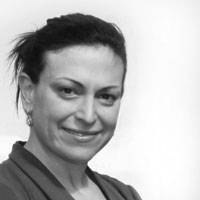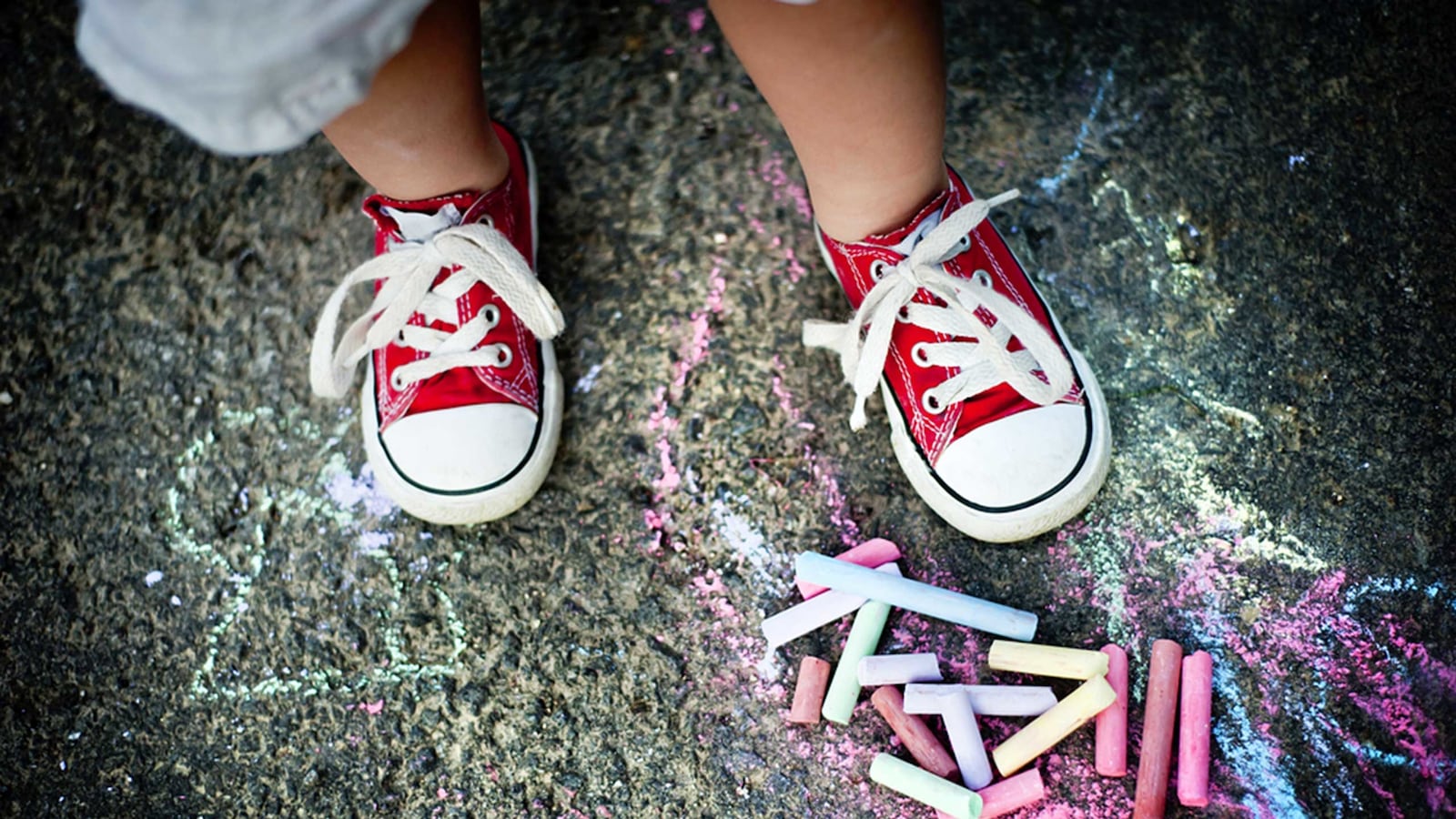On Friday morning, I spent about an hour teetering on a small kindergarten chair, trying to poke away the tears snaking out from under my glasses. What kind of twit, you might wonder, cries in a kindergarten classroom? It’s the kind who is confronting the fact that her child with disabilities will—and should—join the entirely terrifying wider world.
Because he has disabilities, Edmund was the only one of my three children to qualify for free preschool provided by our county. For the last two-and-a-half years, it’s been a pretty sweet deal. Every morning, a bus slows to a halt right in front of our house. Slowly, a wheelchair lift is lowered from the side of the bus like a creaky drawbridge while a line of cars builds up behind the bus, their drivers trying not to look irritated at waiting, because, you know, it’s a preschooler in a wheelchair. An aide wheels him onto the lift, and his brothers press their noses against the glass window and wave as he is lifted up and into the bus. Another bus brings him home in the afternoon.
Even if I’d sent him to some amazing rich-kid private school, I feel like he wouldn’t have done much better. Well, maybe they would have hired some snazzy architect who did exciting things with natural light, but I’ve written before about their awesome gardens. Most importantly, of course, his teacher, paraeducators, and therapists are devoted and energetic and thoughtful and creative and pretty much exactly who you’d want working with your children.
Edmund, now 5, was born with a very rare chromosomal rearrangement known as Cri du Chat syndrome. He is fed solely via feeding tube. He can walk very short distances holding someone’s hands, but primarily uses a wheelchair or crawling for mobility. He has not yet said a word, and can make only a few signs. But once he started being able to make signs for “yes” and “no,” we learned that he could understand a lot more than he could say. He’s very social, and manages to communicate quite a bit through facial expressions and gestures. He’s always aware of who’s in a room and (most importantly) who is and is not paying attention to him. Of all of my kids, he’s the biggest schmoozer.
Mind-bogglingly recently, he would have been classified as “ineducable.” But at his school, he’s learned how to sight-read his own name, begun to identify numbers, point to objects named in pictures (when he’s in the mood, that is), match colors, work on art projects, grow plants from seeds, and practice walking, among many other things.
His school educates kids through high school. So why doesn’t he just stay there? Here’s the catch. His school, which I love so much, is one of the increasingly rare schools exclusively for kids with special needs.
This is what I believe politically, ideologically, culturally: inclusion of people with disabilities in all activities, including schools, is a civil right and a civic duty. There should be no separate-but-equal schools for kids with disabilities. Moreover, I believe that ultimately, were inclusion to be handled ideally, inclusion would not only be a benefit to people with disabilities, but to non-disabled people too.
This what else I believe: we are never going to get close to that inclusion ideal unless parents of children with disabilities insist on inclusion and insist that their children’s needs be met at a mainstream school. Until each and every mainstream school can accommodate each and every child in the community.
This is what my lizard brain whispers to me: Not with Edmund. Not with my sweet boy. Let them figure it out with someone else’s kid.
Perhaps most people think of the parents of kids with disabilities as fighting for inclusion in mainstream schools. And of course, many feel that way. But not all of us, perhaps the more so if our kids have more significant needs.
Of course, there are kids whose medical needs are such that they really need a special kind of supervision, and those, mostly, are the kids who stay at Edmund’s school. While Edmund has his health issues, his medical needs aren’t so great that a mainstream school can’t handle them.
But right now, when Edmund goes to school, no one blinks an eye at his feeding tube. No one stares at him in his gait trainer as he learns to walk, no one points and laughs. His teachers are far more attuned to what he can do, rather than what he can’t do. They don’t wish him away, because when they started at his school, he is what they signed up for.
And when I send him to public school? A lion’s den. A lion’s den that I’ll never find out about because he can’t talk. Where people will not understand him, where people will stare, and laugh. Where teachers will feel uncomfortable and wish he weren’t there.
Here’s the thing. This really is just my lizard brain talking, because I know it isn’t true. It is actually a false dilemma, because it’s not like children in exclusively special needs schools are always in some safe haven. Sure, Edmund’s school now is wonderful, but there is case after case of abusive teachers and administrators at exclusively special needs schools. Recently, a principal at an exclusively special ed school in Rockland County, New York, Kimberly Taylor, and currently tops on my most-hated-person-this-week list, was caught on tape calling her students “retard” and “animals.”
I didn’t cry at the kindergarten because I saw anything wrong there. It seemed like a fine place to go to school. Edmund would be in a classroom with kids with special needs for most of the day, and join his typical peers for music, art, and recess. But if you’re a parent, you know how you feel when you wave goodbye to your kid as she heads to school by herself for the first time? It’s like that, but with the volume all the way up. It was just knowing that I can’t keep him at home hermetically sealed.
Edmund needs the world and the world needs Edmund. He has a disability; that doesn’t mean he shouldn’t live as independent a life as possible. And that will not always go smoothly. It is painful to think he will experience pain, because of course he will; all my kids will. But that’s not all it’s going to be. And I can’t wait to find out what else my “ineducable” kid can learn.






